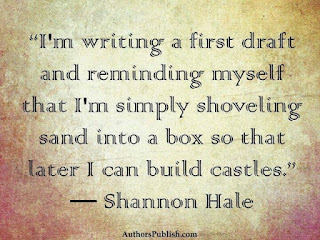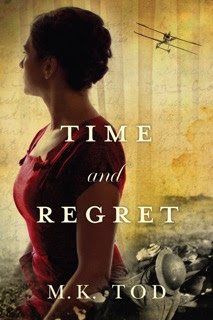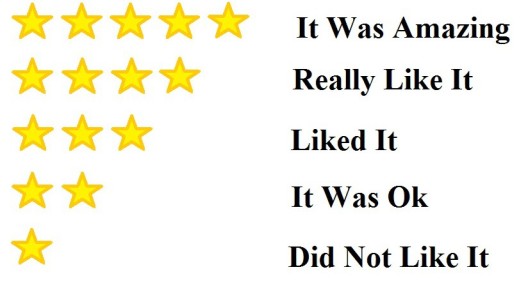My guest this week: M.K. Tod
I spent
2015 looking under the covers of historical fiction to illuminate those
attributes that make it different from contemporary fiction. To do so, I
explored seven elements of writing a novel: setting, characters, dialogue,
world building, conflict, plot and theme.
A
critical question is: “What do readers want?”
When asked what kind of stories they prefer, almost three quarters of
those who participated in a 2015 survey chose ‘fictional characters within a
backdrop of great historical events; close to half chose ‘the life of a
significant historical figure’.
When asked what ingredients create a favourite novel, 86% said ‘feeling
immersed in time and place’, but readers also want ‘authentic and educational’
stories, a ‘dramatic arc of historical events’ and ‘characters both heroic and
human’. When asked why they read historical fiction, 76% said ‘to bring the
past to life’.
Readers love historical fiction, but become annoyed when authors
play around with historical events. When asked ‘what detracts from your
enjoyment of historical fiction’, a large portion of readers cited historical
inaccuracies while others mentioned too much historical detail, cumbersome
dialogue, and characters with modern sensibilities.
Well now, that should be an easy recipe for writers to follow,
shouldn’t it? Let’s look at those seven elements.
Setting: discover enough about your setting(s) to immerse readers in that
time and place. Add details to inform and educate. Help readers understand what
living was like for all manner of people.
Characters: if you choose a famous figure, ensure the details you include
are accurate and find ways to bring out both heroic and human dimensions. When
facts are absent, search for the plausible. Understand the restrictions and
obligations faced by men and women of different classes. Avoid anachronistic
behaviour.
Dialogue: use accessible language sprinkled lightly with references to
era-specific language and terms. Readers are impatient; they don’t want to wade
through ancient language that obscures the story. Avoid words, phrases and
idioms not yet invented. Be careful with words whose meaning has changed over time.
World building: search for details that illuminate
the period. Make sure you understand the political, social, religious, legal,
military, bureaucratic and family context. Country borders are also a factor. Consider
etiquette, fashion, food, drink and social customs. Avoid anachronisms. Find
the big events your characters would know about – a plague, a riot, severe food
shortages, wars, an eclipse, a monarch’s death, a pope’s edict.
Conflict: understand the conflicts inherent to your time period. These
may or may not be the dominant conflicts of your story, however, they will
provide context for them and could affect major or minor characters.
Plot: historical fact is critical when it comes to plot, especially
when writing about major characters. You can’t have Eleanor of Aquitaine in England
if the known facts are that she was in a particular part of what we now know as
France at that particular time. Significant historical events cannot be ignored
but use them to add tension or plot twists.
Theme: themes are generally universal. Myfanwy Cook offers a list in
her book Historical Fiction Writing:
“ambition, madness, loyalty, deception, revenge, all is not what it appears to
be, love, temptation, guilt, power, fate/destiny, heroism, hope, coming of age,
death, loss, friendship, patriotism …” Interpret them against the era of your
writing.
Guide readers into and
through your world. Educate but don’t overwhelm with details. Respect the
facts.
I’d love to hear from
others. If you’re a reader, what would you emphasize or add to this list? If
you’re an author, how have you dealt with these aspects in your writing?
M.K. Tod writes
historical fiction and blogs about all aspects of the genre at A Writer of History.
Her latest novel, TIME
AND REGRET
was published by Lake Union on August 16, 2016. Mary’s other novels, LIES TOLD
IN SILENCE and UNRAVELLED are available from Amazon,
Nook, Kobo, Google Play and
iTunes.
She can be contacted on Facebook,
Twitter
and Goodreads or on her website www.mktod.com.
Time and Regret by
M.K. Tod ~~ A cryptic letter. A family secret. A search
for answers.
When Grace Hansen finds a box belonging to her beloved grandfather,
she has no idea it holds the key to his past—and to long buried secrets. In the
box are his World War I diaries and a cryptic note addressed to her. Determine
to solve her grandfather’s puzzle, Grace follows his diary entries across towns
and battle sites in northern France, where she becomes increasingly drawn to a
charming French man—and suddenly aware that someone is following her.
Time and Regret is available from:
Amazon Canada https://www.amazon.ca/Time-Regret-M-K-Tod/dp/1503938409/
Indiebound http://www.indiebound.org/book/9781503938403
 |
| Are Reviews Important? YES! Read why here! |
 |
| My Books |














































